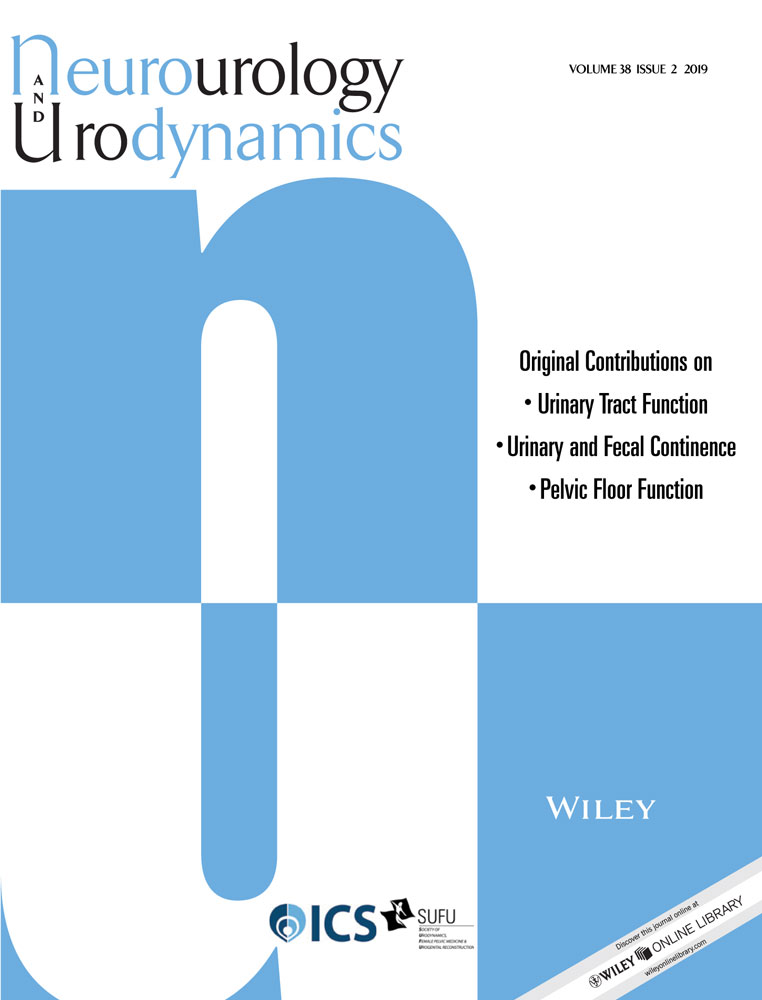Predictive factors of adherence to urinary self-catheterization in older adults
Abstract
Aims
The primary aim is to explore the adherence predicting factors in clean intermittent self-catheterization (CISC) in patients aged over 65 years. The secondary aim is to assess whether in this population, the non-adherence risk is greater, compared with patients under 65.
Methods
All patients older than 65 that successfully learned CISC between January 2011 and January 2016 were included. A control population younger than 65 matched with sex, body mass index, and pathology was selected.
Results
One hundered and thirteen (66.9%) out of the 169 patients older than 65 included were adherent at 1 month, and 80 (47.3%) at 6-12 months. Obesity (P = 0.027), a low PP test (Pencil and Paper test) score (P = 0.037), significant urinary stress incontinence (SUI) (P = 0.048), and prescription of CISC less than three per day (P = 0.03) were the risk factors predicting stopping CISC at 1 month, but none was associated with non-adherence at 6-12 months.
Compared with the younger group, age was a risk factor for poor adherence at 1 month.
Conclusion
Obesity, low PP test score, and important SUI are factors of poor adherence to CISC at 1 month in older adults. Necessity of more than three CISC per day is in favor of treatment continuation, possibly due to absence of spontaneous voiding in these patients. Long-term adherence to CISC in older adults in this study remains close to adherence to other treatments prescribed in urinary disorders, and thus shows that CISC could be an easily purposed therapeutic option in this population, either on a long-term or transitory basis.
CONFLICTS OF INTEREST
Dr. Peyronnet reports personal fees from astellas, personal fees from wellspect, non-financial support from allergan, personal fees from boston scientific, non-financial support from ipsen, outside the submitted work; Dr. Hentzen reports grants from SIFUD-PP (the francophone society of urodynamics), grants from GREEN GRC-01 UPMC (Group of clinical REsEarch in Neurourology), outside the submitted work; Dr. Amarenco reports personal fees from allergan, personal fees from coloplast, personal fees from wellspect, personal fees from astellas, outside the submitted work; Dr. Denys reports personal fees and non-financial support from ipsen, personal fees and non-financial support from allergan, personal fees from medtronic, personal fees from coloplast, outside the submitted work; Dr. Haddad reports personal fees from astellas, non-financial support from wellspect, non-financial support from allergan, outside the submitted work; and Dr. Game reports personal fees from astellas, personal fees from coloplast, personal fees from ipsen, personal fees from medtronic, personal fees from pfizer, personal fees from pierre fabre medicament, personal fees from takeda, outside the submitted work.




